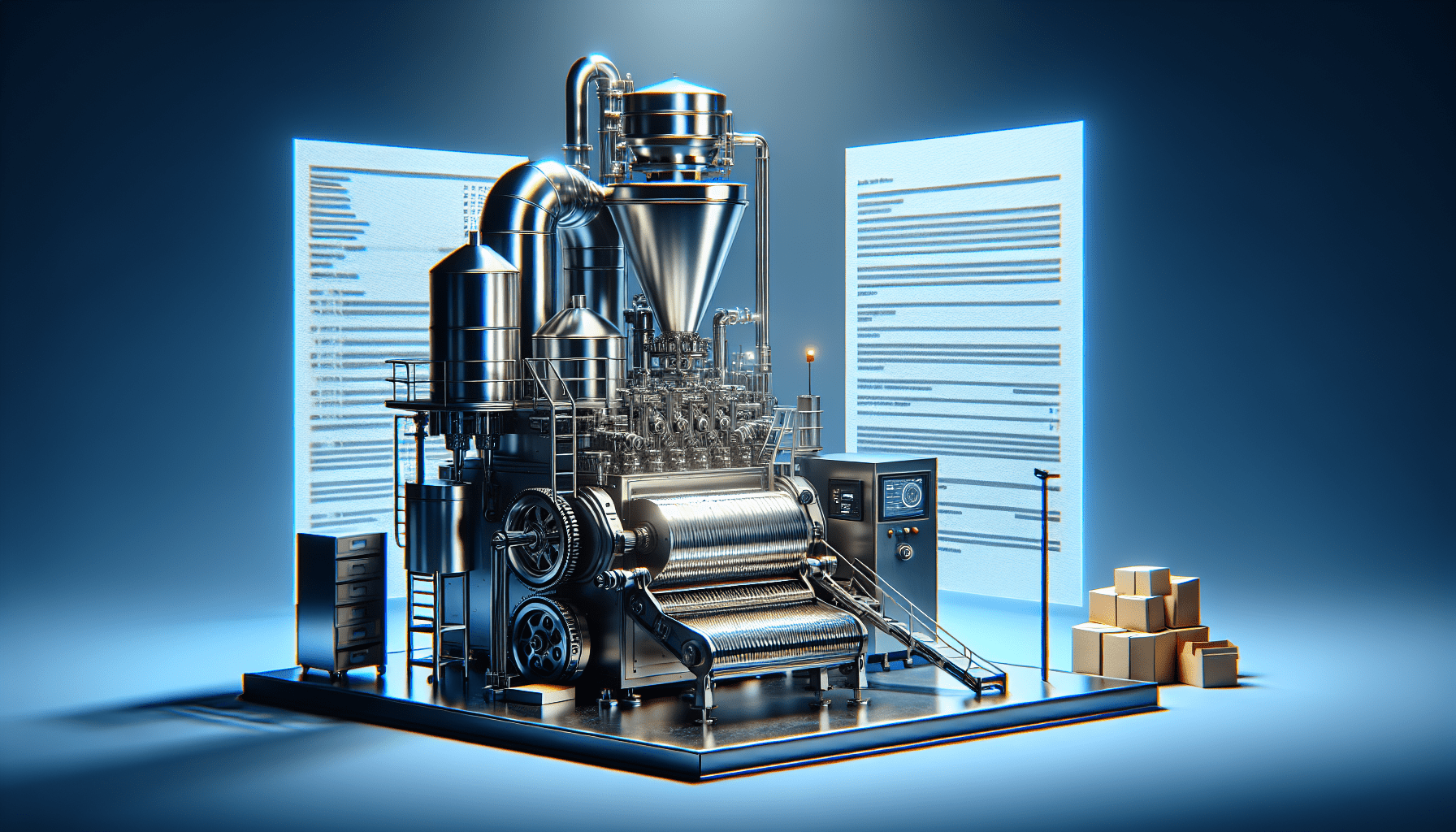Why Should I File ISF For Other Food Processing Machinery
So, you’re thinking about filing an ISF for your other food processing machinery and you’re wondering why you should bother. Well, let me tell you, just like you need a good recipe to make a delicious meal, you need the proper paperwork to import your machinery smoothly. Sure, it may seem like a hassle, but think of it as the secret ingredient to avoiding any snafus or delays when bringing in these crucial pieces of equipment. Plus, it’s a great way to show off your organizational skills and impress your colleagues with your attention to detail. So go ahead, embrace the paperwork and let your food processing dreams come to life without a hitch!

Are You Confused About ISF Filing for Food Processing Machinery?
So, you’ve found yourself in the confusing world of ISF filing for food processing machinery. Don’t worry; you’re not alone! Many people are unsure about the process and the reasons behind it. Let’s break it down for you in a humorous and informative way!
Understanding ISF and its Importance
ISF stands for Importer Security Filing, which is a U.S. Customs and Border Protection (CBP) regulation that requires importers to provide specific information about their shipments before they arrive in the United States. This information helps CBP assess the risk of the cargo and make sure there are no security threats.
Think of ISF as a Pre-Party Guest List for CBP
Imagine CBP as the bouncer at a fancy party, and your shipment is the VIP guest. By filing ISF, you’re essentially providing CBP with a guest list ahead of time so they can decide whether to let your shipment into the country or not.

Which Food Processing Machinery Requires ISF Filing?
Not all food processing machinery requires ISF filing. The U.S. Customs and Border Protection provides a list of HTS Codes (Harmonized Tariff Schedule) that determine whether ISF filing is required for specific types of machinery.
Do You Really Want to Take the Risk?
Imagine your food processing machinery stuck at the border because you didn’t file the necessary ISF. Not a pretty picture, right? Play it safe and check the HTS Codes to see if your machinery falls under the category that requires ISF filing.
Reasons to File ISF for Other Food Processing Machinery
Now that you know what ISF is and which machinery requires it, let’s dive into why you should bother filing ISF for other food processing machinery that might not be explicitly listed as a requirement.
Smoother Customs Clearance Process
Filing ISF for all your food processing machinery, even if it’s not required, can help speed up the customs clearance process. CBP is more likely to prioritize shipments with complete and accurate information, so don’t let your machinery sit at the border longer than necessary!
Avoid Costly Penalties
CBP takes ISF filing seriously, and failing to comply can result in hefty penalties. By proactively filing ISF for all your food processing machinery, you can avoid the headache of dealing with fines and potential delays in receiving your shipments.
Peace of Mind
Knowing that you’ve done everything by the book when it comes to ISF filing can give you peace of mind. You’ll have one less thing to worry about as your machinery makes its way to your facility, allowing you to focus on more important aspects of your business.

How to File ISF for Other Food Processing Machinery
Filing ISF for other food processing machinery is a relatively straightforward process, especially if you’ve done it before. Here’s a step-by-step guide to help you navigate through the ISF filing requirements:
-
Gather Required Information: Collect all the necessary information about your shipments, including the manufacturer, shipper, and consignee details.
-
Log into ACE Portal: Access the Automated Commercial Environment (ACE) Portal, the online platform where importers submit their ISF filings.
-
Enter Shipment Details: Fill out the required fields in the ISF form, such as the bill of lading number, container stuffing location, and port of lading.
-
Review and Submit: Double-check all the information you’ve entered to ensure accuracy before submitting the ISF form. Once everything looks good, hit submit!
-
Receive Confirmation: After submitting the ISF form, you’ll receive a confirmation from CBP indicating that your filing has been accepted.
-
Monitor Shipment: Keep an eye on your shipment’s progress and be prepared to provide any additional information requested by CBP.
Common Mistakes to Avoid When Filing ISF
Navigating the ISF filing process can be tricky, especially if you’re new to it. Here are some common mistakes to avoid when filing ISF for other food processing machinery:
Procrastinating
Don’t wait until the last minute to file your ISF. Submitting the required information early can help you avoid unnecessary delays and ensure a smoother customs clearance process.
Inaccurate Information
Make sure all the details you provide in the ISF form are correct and up-to-date. Any discrepancies or missing information can lead to fines or even shipment holds at the border.
Ignoring Updates
CBP regulations and requirements can change, so it’s essential to stay informed and updated on any new developments. Ignoring updates could result in non-compliance issues with CBP.
Being Overconfident
Even if you’ve filed ISF multiple times before, don’t get overconfident. Every shipment is unique, and overlooking details or rushing through the process can lead to mistakes.

Conclusion
Filing ISF for other food processing machinery may seem like a hassle, but the benefits far outweigh the inconveniences. By proactively providing CBP with the necessary information, you can expedite the customs clearance process, avoid penalties, and enjoy peace of mind knowing your shipments are on track.
So, next time you’re debating whether to file ISF for that new food processing machinery order, remember the VIP guest list analogy and the importance of playing by the rules. It’s worth the effort in the long run!